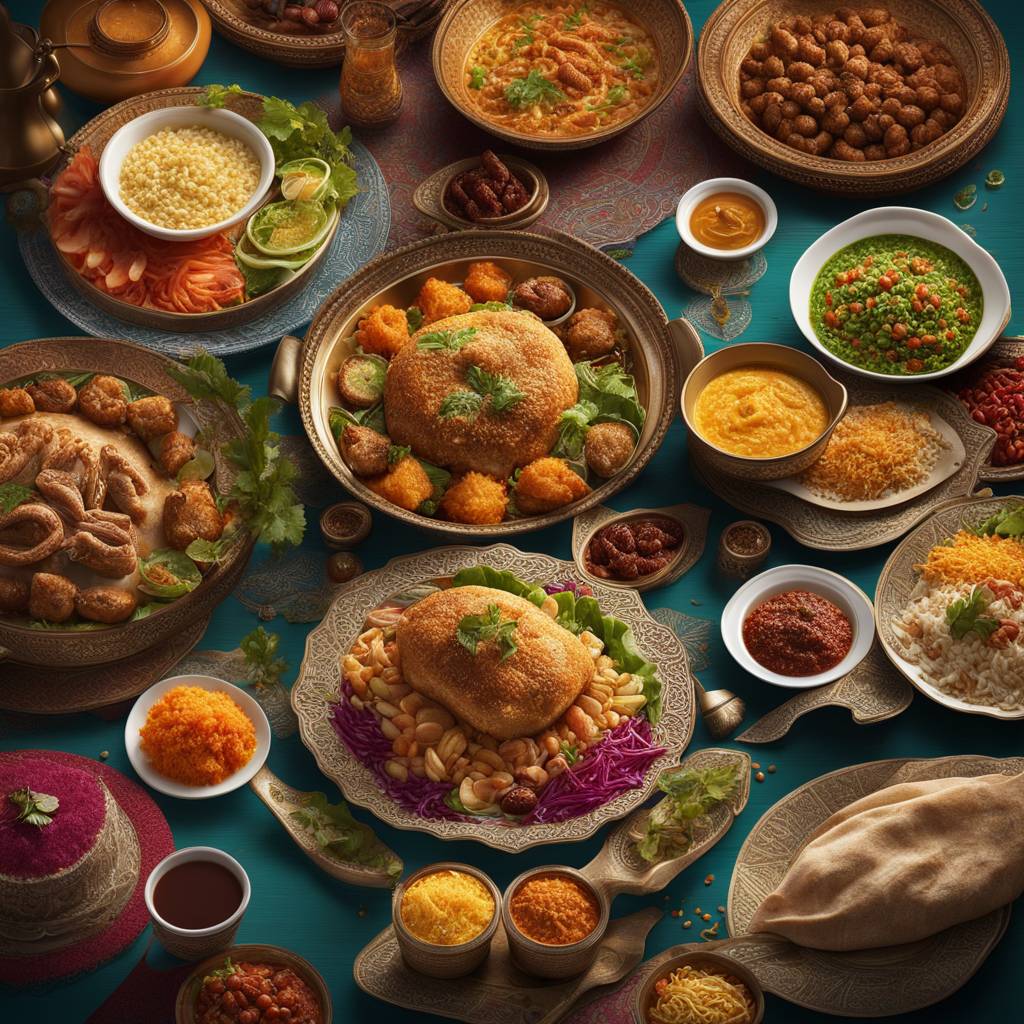During the Islamic holy month of Ramadan, Muslims worldwide gather to break their fast with dates and water followed by a meal known as iftar. With approximately 1.9 billion Muslims globally, rising food prices have forced many households to reconsider their favourite Ramadan dishes. Comparing the prices of various ingredients from supermarket chains in 14 countries, Al Jazeera found significant increases in the cost of traditional meals, impacting the affordability of iftar for many families.
Argentina, known for its beef dishes, has seen a 303 percent increase in food costs in February 2024 compared to the previous year. An iftar meal in Argentina including beef asado, empanadas, and dulce de leche pancakes now costs about 7,200 pesos, reflecting over a fourfold increase from 2023. Similarly, Australia’s multicultural landscape influences its iftar meals, with prices rising due to inflation in key ingredients like meat and eggs.
Bosnia and Herzegovina, a country with a diverse culinary heritage, has experienced a 7 percent increase in the cost of a traditional iftar meal including pita krompiruša and hurmašica. In Egypt, inflation and a depreciating currency have led to a 74 percent increase in the cost of an iftar meal consisting of grape leaves, molokhiya soup, and kunafa. India, on the other hand, saw a decrease in the price of an iftar meal due to a drop in onion prices following a ban on onion exports.
In Indonesia, the world’s largest Muslim nation, iftar traditions feature bubur, bakwan, and kolak pisang, with a 6 percent increase in cost from the previous year. Malaysia’s iftar meal of beef rendang, sayur lodeh, and seri muka has seen a 7 percent increase in price. Nigeria’s jollof rice, moi moi, and fruit salad have increased by 68 percent due to inflation, while Pakistan’s dahi baray, fruit chaat, and jalebi have seen an 18 percent rise.
In Palestine, maklouba, dagga, and katayif now cost 11 percent more than in 2023, with significant price hikes in olive oil and meat. South Africa’s traditional iftar meal of pap en vleis, chakalaka, and koeksisters has seen a 13 percent increase, with rising prices in chakalaka and pantry items. Turkey’s iftar meal of dolma, cacik, and muhallebi has increased by 20 percent due to inflation, particularly in dairy products.
In the UK, a seafood iftar costs 4 percent more than the previous year, while the US’s oven-roasted chicken meal has increased by 5 percent. With the ongoing challenges of inflation impacting food prices globally, Muslims observing Ramadan must navigate the rising costs to uphold their traditions and share in the communal spirit of iftar.













